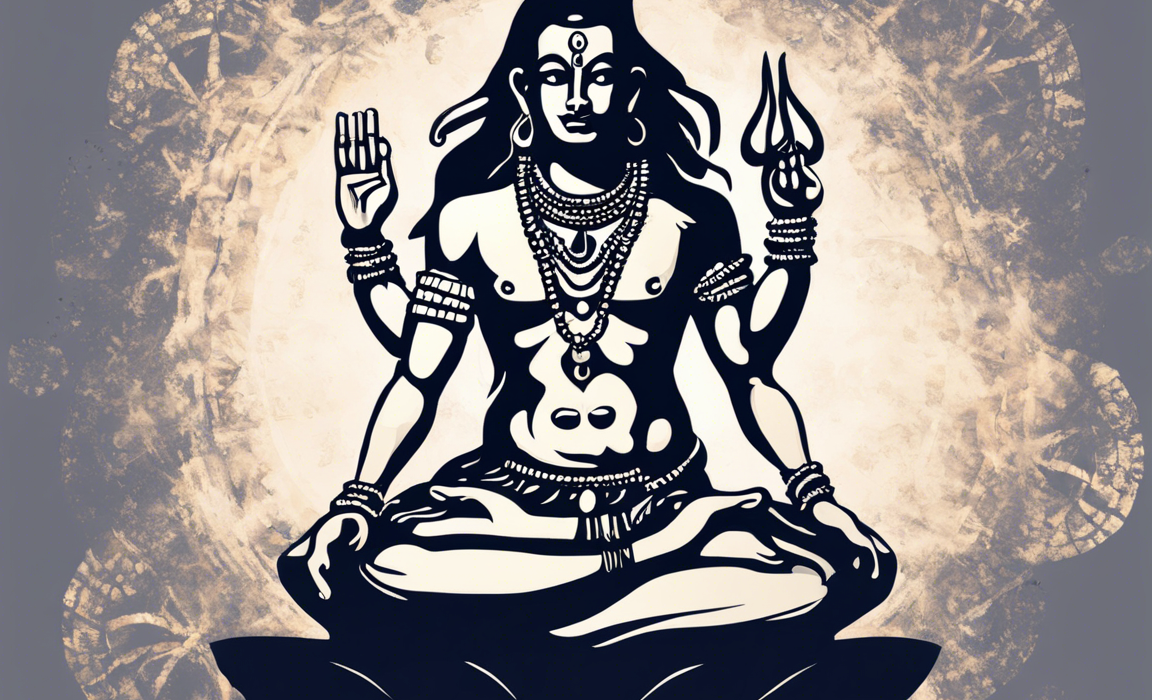Introduction
Mahashivratri, also known as the Great Night of Shiva, is a significant Hindu festival celebrated annually in honor of Lord Shiva. It falls on the 14th night of the dark fortnight in the Hindu month of Phalguna. This auspicious occasion holds immense spiritual significance for millions of devotees across the globe who undertake various rituals to pay homage to the supreme deity of destruction and transformation, Lord Shiva.
History and Significance
Mahashivratri holds immense religious and cultural significance in Hindu mythology. According to popular belief, it is the night when Lord Shiva performs the divine dance of creation, preservation, and destruction. It is also believed to be the night when Lord Shiva married Goddess Parvati, symbolizing the union of the divine masculine and feminine energies.
Devotees believe that observing fasts, meditating, and performing prayers on Mahashivratri can help cleanse the mind, body, and soul, and seek the blessings of Lord Shiva for prosperity, happiness, and liberation from the cycle of birth and death.
Celebrations and Rituals
Mahashivratri is celebrated with great enthusiasm and devotion by Shiva devotees worldwide. The festival typically involves various rituals, ceremonies, and traditions that are observed with immense fervor. Some of the common practices and rituals associated with Mahashivratri include:
1. Fasting: Many devotees observe a day-long fast on Mahashivratri as a mark of respect and self-purification. Some choose to consume only fruits and dairy products, while others abstain from food and water altogether.
2. Abhishekam: Special prayers and rituals, known as Abhishekam, are performed in temples where devotees pour milk, honey, water, and other sacred items over the Shiva Lingam while chanting prayers and mantras.
3. Night Vigil: Devotees often stay awake throughout the night, engaging in meditation, chanting of Shiva mantras, and reading scriptures in praise of Lord Shiva.
4. Visiting Temples: Temples dedicated to Lord Shiva witness large gatherings of devotees who come to offer prayers, seek blessings, and participate in the festivities.
5. Holi Bonfire: In some regions, Mahashivratri marks the beginning of the Holi festival, with the lighting of bonfires symbolizing the triumph of good over evil.
Mahashivratri 2024
The year 2024 is set to witness another grand celebration of Mahashivratri on March 4th. Devotees are expected to come together to observe the auspicious occasion with piety, devotion, and joy. It is a time for spiritual reflection, renewal, and seeking the divine grace of Lord Shiva.
FAQs (Frequently Asked Questions)
1. What is the significance of Mahashivratri?
Answer: Mahashivratri is considered an extremely auspicious day dedicated to Lord Shiva, symbolizing the victory of good over evil and the attainment of spiritual enlightenment.
2. How is Mahashivratri celebrated in India?
Answer: In India, Mahashivratri is celebrated with fasting, offering prayers to Lord Shiva, visiting temples, and participating in night-long vigils.
3. Can anyone observe fast on Mahashivratri?
Answer: Yes, anyone can observe a fast on Mahashivratri, regardless of age or gender, as a mark of devotion and seeking blessings from Lord Shiva.
4. What is the significance of Abhishekam during Mahashivratri?
Answer: Abhishekam is a sacred ritual where devotees pour water, milk, honey, and other items on the Shiva Lingam to seek blessings, purification, and divine grace.
5. Why is staying awake throughout the night important on Mahashivratri?
Answer: Staying awake on Mahashivratri symbolizes vigilance, meditation, and spiritual awakening, as devotees immerse themselves in prayers and contemplation.
6. Can non-Hindus participate in Mahashivratri celebrations?
Answer: Yes, Mahashivratri celebrations are open to people of all faiths and backgrounds who wish to join in the festivities, learn about Hindu culture, and seek spiritual growth.
7. Is it necessary to visit a temple on Mahashivratri?
Answer: While visiting a temple is a traditional way to celebrate Mahashivratri, individuals can also observe the festival at home by meditating, chanting mantras, and offering prayers to Lord Shiva.
8. What are the benefits of fasting on Mahashivratri?
Answer: Fasting on Mahashivratri is believed to purify the body and mind, increase self-discipline, and invoke blessings from Lord Shiva for peace, prosperity, and spiritual growth.
9. How does Mahashivratri relate to the cycle of creation and destruction?
Answer: Mahashivratri symbolizes the cosmic dance of creation, preservation, and destruction performed by Lord Shiva, highlighting the cyclical nature of existence and the eternal cosmic order.
10. Are there any specific prayers or mantras recited on Mahashivratri?
Answer: Devotees often chant “Om Namah Shivaya” and other sacred mantras dedicated to Lord Shiva to invoke His blessings, protection, and benevolence during Mahashivratri celebrations.
In conclusion, Mahashivratri is not just a festival but a spiritual journey for devotees to connect with their inner selves, seek divine grace, and celebrate the essence of Lord Shiva – the supreme being who signifies destruction, transformation, and liberation. As devotees gear up for the grand celebration of Mahashivratri 2024, let us all embrace the spirit of devotion, unity, and enlightenment that this auspicious occasion brings.

